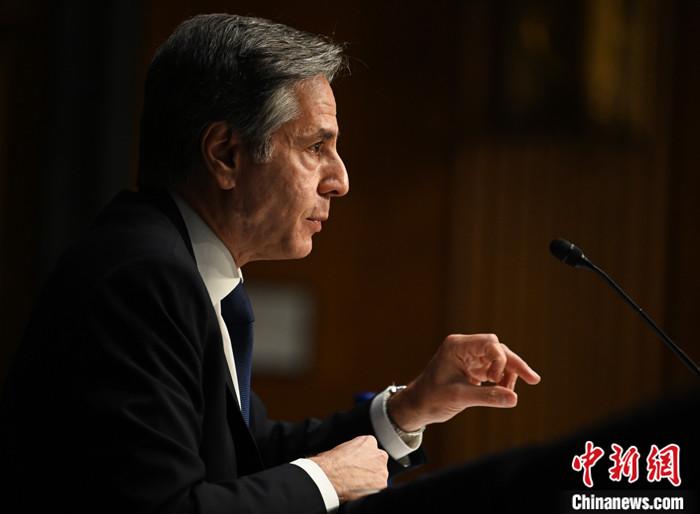China News Service, May 27. According to Agence France-Presse, on May 26 local time, US Secretary of State Blinken delivered a speech on the Biden administration's China policy at George Washington University.
Blinken said the United States does not seek a "cold war" with China.
"We have no intention of seeking conflict or a 'cold war,' rather, we are determined to avoid both," Blinken said.
Secretary of State Blinken.
Photo by China News Agency reporter Chen Mengtong
He also said, "We do not seek to prevent China from functioning as a great power, nor do we prevent China - or any country - from developing its economy or advancing the interests of its people."
However, Blinken also claimed that the United States will defend the so-called "global order including international law and agreements" and "enable all countries - including the United States and China - to coexist and cooperate".
In addition, Blinken announced that the U.S. State Department will establish a "China House" to coordinate U.S. policy toward China.
The speech, originally scheduled for May 5, was postponed after Blinken contracted the coronavirus.
Previously, U.S. President Biden had just wrapped up a four-day "Asian trip" and launched the "Indo-Pacific Economic Framework" (IPEF) in Tokyo, Japan, aimed at containing China in the economic and trade field.
Earlier this month, Chinese Foreign Ministry spokesman Zhao Lijian said that as permanent members of the UN Security Council and the world's two largest economies, the development of a healthy and stable bilateral relationship between China and the United States is in the fundamental interests of the two countries and is also widely expected by the international community.
Both history and reality show that cooperation between China and the United States will benefit both, while confrontation will hurt both.
Zhao Lijian emphasized that China-US relations are currently at an important crossroads. We hope that the US side will implement the relevant positive statements of President Biden and abandon the outdated zero-sum thinking of the Cold War.
The U.S. side should meet China halfway, earnestly implement the consensus reached by the two heads of state, strengthen communication, manage differences, focus on cooperation, and push China-U.S. relations back to the right track of healthy and stable development at an early date.

